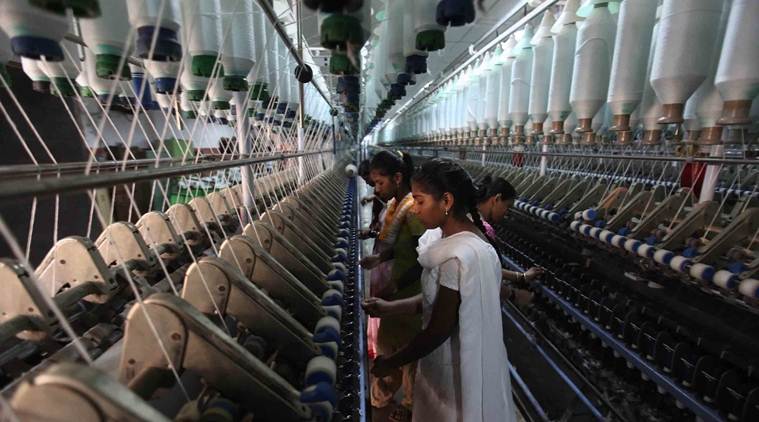A group of textile companies on Monday approached the Directorate General of Trade Remedies (DGTR) against a move by Reliance Industries Ltd and India Glycols Ltd seeking imposition of anti-dumping duties on a raw material used to make polyester.
In a letter to DGTR Director General BS Bhalla, an association representing companies like Indo Rama Synthetics India, Filatex India, Garden Silk Mills and Bombay Dyeing had argued that imposing such a duty on the material — mono ethylene glycol (MEG) — would lead to a “significant” loss to India’s textile units.
“… there exists a huge demand supply gap in India because of which imports are essential to meet the requirements of our members,” stated the PTA Users Association (PTAUA) in the letter dated February 3, a copy of which The Indian Express has viewed.
“The imposition of anti-dumping duty would increase the cost of textiles and as you are aware, the ability of textile units to increase the prices commensurate with the increase in costs is very limited,” it said, adding that, under these circumstances, levying anti-dumping duty on MEG would not be in public interest.
“While the levy may help the petitioner company in a limited way, it will cause irreparable damage to our members,” said PTAUA.
The association, which represents 21 end users claiming to account for two million metric tonnes per year of MEG consumption, also submitted that India’s current MEG production capacity fell short of the demand of the product by around 36 per cent.
India imported around $532 million worth of ethylene glycol from countries in 2018-19, and around $320.18 million between April and November 2019, according to data from the Commerce Ministry. Kuwait, Saudi Arabia, Singapore and United Arab Emirates were the top exporters of this product to India last fiscal.
Last year, Reliance Industries — in a petition supported by India Glycols — had alleged that there was dumping of MEG from the abovementioned countries as well as Oman.
“The petitioners have claimed that domestic industry has suffered material injury by way of adverse price effects as evidenced by price undercutting and price depression leading to accumulation of inventories, deterioration in profits, decline in return on capital employed and cash profits,” stated the DGTR’s December 9 initiation notification on the matter.
“The petitioners have claimed that the material injury has been caused due to the dumped imports from the subject countries,” it stated, adding that the authority considered that there is “sufficient” prima facie evidence of material injury to justify initiation of an anti-dumping investigation.
Published On : 04-02-2020
Source : Indian Express

